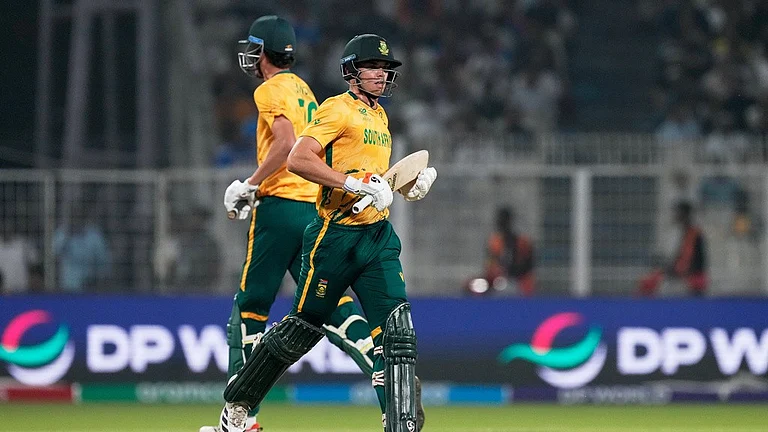“My father is gone. My mother and all of us are covered with blood. My uncle’s wife is under rubble,” this is a message of a child played by UNICEF on November 19, saying “Inside the Gaza Strip, there is nowhere safe for one million children to turn.”
On World Children's Day, Palestine Refugee children identified Lujain and Leen have another message: Stop the war in Gaza. The UN Agency for Palestine Refugees carried their message stating: “I am talking to you with our hearts full of sadness and in this pain of what is happening in Gaza. It is time to raise our voices for peace and a future where all children can live in safety and hope.” “Every night, children tremble at the sound of shelling and are starving for hunger. Aren’t the children of Gaza like the children in this world.”
Kinan Al-Ghalban, a 12-year-old resident of Khan Yunis, lives in their home during the day and at the nearby school at night. In his message asks the world, “we are not animals, we are humans. We have the right to live safely.”
On the same day as the World Health Organisation-led joint UN mission entered Al-Shifa Hospital in northern Gaza to evacuate 31 babies, they found none of these babies were accompanied by family members. The babies were successfully transported to the neonatal intensive care unit at Al-Helal Al-Emarati Maternity Hospital in southern Gaza, where they are being assessed and stabilized, the WHO said.
“The severely ill babies were transported in 6 ambulances supplied and staffed by the Palestine Red Crescent. Other mission members included UN Mine Action, UNICEF and UNRWA. The mission was once again assessed as high-risk, due to the active combat taking place in close proximity to the hospital.”
These premature and low birthweight babies had earlier been moved from the neonatal unit in Al-Shifa to a safer area in the hospital, due to lack of electricity to run their life support, and security risks in the hospital.
The babies were successfully transported to the neonatal intensive care unit at Al-Helal Al-Emarati Maternity Hospital in southern Gaza, where they are being assessed and stabilized. Doctors there say all the babies are fighting serious infections due to a lack of medical supplies and the impossibility of continuing infection control measures in Al-Shifa Hospital. Eleven are in critical condition.
“Sadly, none of the infants were accompanied by family members, as the Ministry of Health has only limited information, and is not currently able to find close family members.”
According to a doctor from Doctors Without Borders (MSF) in Gaza, an alarming number of children have arrived at hospitals without any surviving family members. In response to this heartbreaking situation, medical professionals have introduced a new acronym, 'WCNSF' (Wounded Child No Surviving Family)."
About the latest evacuation, WHO said the evacuation, which was requested by health workers and patients during the joint mission, became necessary as Al-Shifa Hospital is no longer able to function due to a lack of clean water, fuel, medical supplies, food, other essential items and the intense hostilities. “WHO remains deeply concerned about the safety and health needs of patients and health workers who remain at Al-Shifa Hospital, and in the few partially functional hospitals in the north that face imminent closure.”
Earlier Richard Brennan ,WHO’s Regional Emergency Director of the World Health Organization (WHO) Eastern Mediterranean Region, had described the situation in Gaza hospitals like other sectors as catastrophic saying Al-Shifa hospital staff were burying bodies in a mass grave.
He said the humanitarian situation is catastrophic overall, especially in the health system with 75% of Gaza's 36 hospitals are non-functioning post-conflict. Previously, there were about 3,500 hospital beds, but now only around 1,000 beds remain while health needs are increasing dramatically across Gaza. Limited resources and an overwhelming number of patients create a dire situation. He said healthcare workers face difficult decisions in prioritizing patients for treatment, essentially choosing who lives and who dies. He said scenarios like multiple patients needing surgery or ventilators with limited availability are common, forcing healthcare providers to make tough choices about whom to prioritize.
On November 13, Doctors Without Borders issued a statement that there was no electricity and no water in the hospital. “There’s no food. People will die in a few hours without functioning ventilators.”
“In front of the main gate, there are many bodies. There are also injured patients; we can’t bring them inside. When we sent an ambulance to bring the patients—a few meters away—and they attacked the ambulance. There are injured people around the hospital looking for medical care. We can’t bring them inside. There’s also a sniper who attacked patients, they have gunshot wounds. We operated on three of them.”
“There are 600 inpatients, 37 babies, someone who needs an ICU. We can’t leave them.”
WHO’s latest statement says, there remain over 250 patients and 20 health workers at Al-Shifa, who all request immediate evacuation. “Planning is ongoing to evacuate the remaining patients, their families and the health-care workers. Given the complex security and logistics constraints, these evacuations will take several days to complete. Priority will be given to the 22 dialysis patients and 50 patients with spinal injuries.”
WHO called for collective efforts to bring an end to the hostilities and humanitarian catastrophe in Gaza. “We call for an immediate ceasefire, the sustained flow of humanitarian assistance at scale, unhindered humanitarian access to all of those in need, the unconditional release of all hostages—many of whom have serious medical needs—and the cessation of attacks on health care and other vital infrastructure.”
On November 19, UN Secretary General said he was deeply shocked that two UNRWA schools were struck in less than 24 hours in Gaza. “Dozens of people – many women and children – were killed and injured as they were seeking safety in United Nations premises.”
“This war is having a staggering and unacceptable number of civilian casualties, including women and children, every day. This must stop. I reiterate my call for an immediate humanitarian ceasefire,” he said.






















